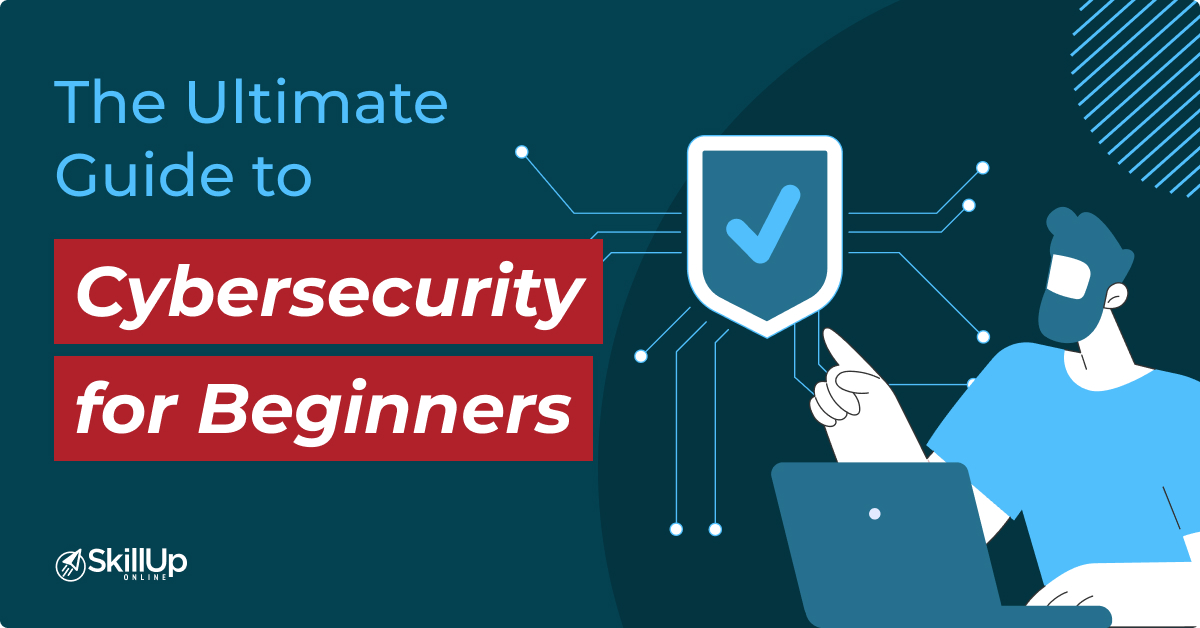Cybersecurity professionals are the “superheroes” of the digital world. They may not wear a cape, but their expertise is a super power that prevents cybercriminals from disrupting organizations. Their work is ever-changing, and they work tirelessly to stay one step ahead.
What is cybersecurity?
In simple terms, cybersecurity is the practice of protecting computers, servers, mobile devices, electronic frameworks, networks, connectivity, and all that technology offers from being compromised. This includes everything from safeguarding sensitive information and maintaining reliable access to systems, to preventing a digital pandemic.
As cybercrime evolves, so do the cybersecurity measures needed to protect organizations from it. To evade conventional information security controls, cybercriminals are now employing more innovative strategies that are powered by AI and social engineering. Cybersecurity specialists spend their time checking for flaws, detecting, investigating, deconstructing, anticipating, and responding to these nefarious strategies to protect our data and business systems.
Cybersecurity impacts us all by keeping the status quo
A cybersecurity professional’s success is measured in the lack of security breaches. If everything is continuing as it should, they are succeeding. They fight the attack before it happens and when it does happen, the impact can be significant.

When a cyberattack invades a company’s security system, its bottom line and the trust of its customers can take a substantial hit. To add some context, cybercrime cost the world USD $6 trillion in 2021. That’s no small sum. The impact often extends beyond simple operational hassle to significant legal and reputational implications.
A case in point: The Equifax cybercrime identity fraud impacted around 145.5 million U.S. purchasers. As a result, Equifax shares dropped 13% the day after the breach and the organization faced major reputational harm. Post settlement with the Federal Trade Commission, Equifax paid over $500 million in fines and remuneration costs.
This example highlights how important the role of a successful cybersecurity professional is and as a result, the career path has a lot to offer talented individuals.

How do you become a cybersecurity professional?
The good news is, businesses recognize this need and are intent on finding candidates with the necessary technical knowledge and abilities. A large perk in the field of cybersecurity is that employers understand that every professional has to begin somewhere.
To kick things off, you need to familiarize yourself with the essentials. If you get a good grounding in the fundamentals, you’ll have a solid platform on which to build your career further.
An excellent starting point is the Foundations of Cybersecurity Program. This program will build your understanding of threat detection techniques, tools, and methodologies. You’ll learn how to plan a security incident response and discover all you need to know about red team vs blue team exercises. Plus, you’ll get your hands dirty using PowerShell and learn how to secure Microsoft Azure and SQL server.
Once you have that knowledge under your belt, you’ll then be able to decide which direction you’d like to build more specific skills. For example, you may be interested in carrying out Information Security Audits, or you may want to go platform-specific and build competencies in software such as Microsoft.
Are employers simply looking for strong technical knowledge and experience?
The short answer is no. Many leading employers have realized that talented individuals can build on their technical knowledge once they have the fundamentals. In a field as fast-moving as cybersecurity, technical knowledge from five years ago becomes increasingly irrelevant. Therefore, these employers are also looking for evidence of strong soft skills within the vast number of resumés they review for a vacancy.
Your resumé must meet certain criteria in order to catch the eye of a recruitment specialist. Obviously, strong technical skills evidenced by certifications are critical. However, they’ll also be looking out for evidence of problem solving, creative thinking, team playing, and leadership; not to mention outstanding communication. From there, they’ll cherry pick the professionals who have the motivation to not only keep up to date but also get and stay ahead of the curve.
Job roles offering versatile career options

Once you’ve landed your first job, there are many paths you can pursue as your career develops. For example, you can go deeper into network security or security analysis, or you can specialize in cybersecurity management instead.
Example job roles include:
Network Security Engineer: protects systems from cyber threats, including malware, bugs, and hacking attempts. Typical Salary – $102,571 per year.
Cyber Security Analyst: protects a company’s software, hardware, and networks from cybercriminals. Typical Salary $103,590 per year.
Security Architect: responsible for designing, creating, and maintaining the security systems within an organization’s IT network. This also includes the computer systems and data. Typical Salary – $129,369 per year.
Cyber Security Manager: oversees security systems and teams, and identifies potential network vulnerabilities. Responsible for devising strategies to counter the methods cybercriminals use to infiltrate information systems as well. Typical Salary – $124,990-$153,240 per year.
Chief Information Security Officer (CISO): a senior-level executive responsible for developing and implementing an information security program. This includes systems, procedures and policies designed to protect enterprise communications, and assets from both internal and external threats. Typical Salary – $202,104 to $267,299 per year.
The power of continuous learning
Survey fact: 93% of the cybersecurity professionals surveyed agree that they ‘must keep up with their skills or else the organizations they work for will be at a significant disadvantage against cyber-attackers.’ – ESG/ISSA’s annual research report
It’s a powerful survey because it highlights the importance of continuous learning in a cybersecurity career. This comes at no surprise when you remember that these professionals are working in a rapidly evolving landscape. Which, in turn, is what gives newcomers the opportunity to start their career.
Career entrants who have the motivation to immerse themselves in the topic will find their knowledge becomes entirely relevant very quickly. They’ll find themselves protecting businesses across all industries day in and day out through their knowledge, creativity, and dedication; the cape is optional.

Technical Specialist at SkillUp Online.
Cyber security expert providing online mentoring and training support to learners.
Cyber Security- major
Data Science




